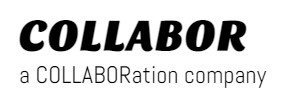Malware is malicious software design to steal, damage, or deny access to your data and devices. Let’s talk about it and some ways to prevent it. Usually malware arrives as a link or attachment in email pretending to be from a known person or company in an effort to trick you. That’s called phishing. Malware can also come from downloads, webpages, or removable devices, like a thumb drive. If malware installs, you usually won’t notice it might sit quietly for a while before activating. When malware does activate, it might slow down your device and could gain access to your sensitive data including personal information, files, photos, and passwords.

One type of malware is ransomware which blocks access to devices until you pay money. And even if you pay, there’s no guarantee you’ll get your data back. So, when it comes to malware, prevention is almost always better than cure.
- First, never open attachments or links that you weren’t expecting or that don’t seem right.
- Second, only download software from trusted sites. If you get a warning of a potential threat on a webpage or download, take heed and close the tab.
- Third make sure you’re on top of security updates and have a good, current antimalware running. Windows 10 includes one, Microsoft Defender Antivirus, and it’s turned on by the default. To manually check on updates and security type “update” in the Search box, enter, then Check for updates.
- Fourth, make sure you have regular backups of all your data. So, if something happens, like ransomware attack, you can clean your device and and restore your data from a recent backup. An external drive or OneDrive can help with backups. OneDrive even includes built-in ransomware detection and recovery.
We have more information on malware including how to clean your PC and tools to help if you’re in trouble.
Learn more at the Microsoft Security help center: https://support.microsoft.com/security
Staying safe from call scams: https://community.windows.com/en-us/videos/staying-safe-from-call-scams/IzYk-y-0raE
Staying safe from web browser scams: https://community.windows.com/en-us/videos/staying-safe-from-web-browser-scams/CLh0c3WpcPo
Staying safe from email & chat scams: https://community.windows.com/en-us/videos/staying-safe-from-email-chat-scams/amkejUbjpuo
Staying safe from call scams: https://community.windows.com/en-us/videos/staying-safe-from-caller-id-spoofing/heQjO1TRxyk
Bron: Microsoft

Recente reacties